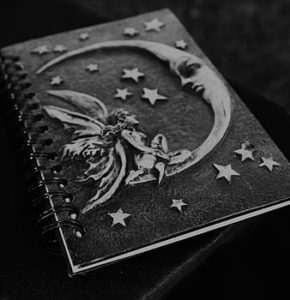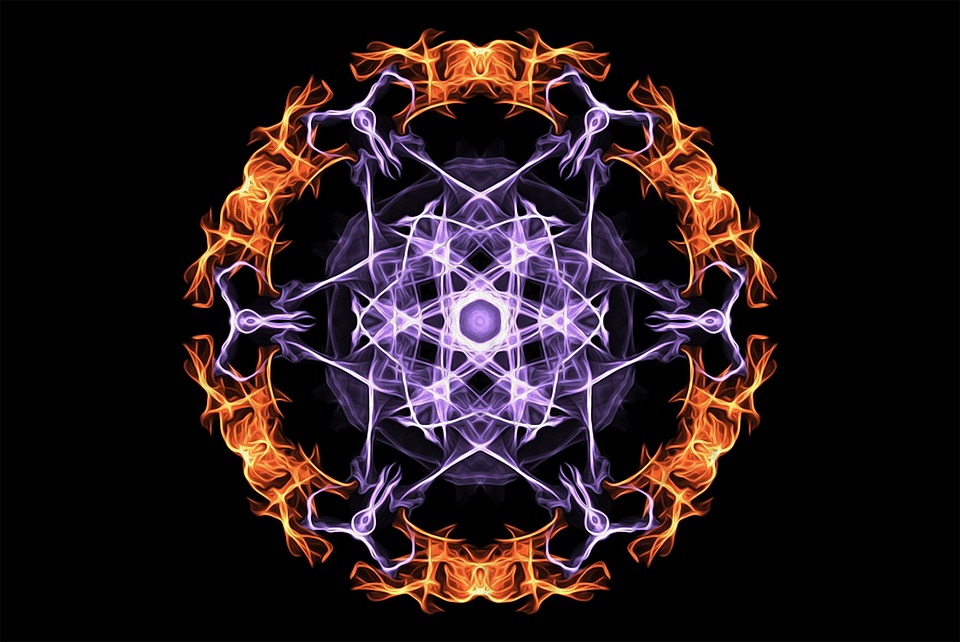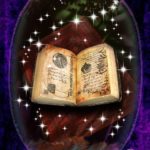The concept of esoteric magic can mean a wide variety of things. In a modern, practical context, the definition and usage of the term can be traced to Helena Blavatsky and those associated with the Theosophical movement. This is typified by a synthesis of different and historically unrelated magical practices. Drawing from numerous spiritual sources, esoteric magic in the 21st century is a piecing together of rituals and philosophies that have become truly esoteric in the passage of time. Many pagan practices from the British Isles, practices from Ancient Egypt, the practices of Mediterranean mystery cults, and other civilizations in the ancient world are for the most part lost forever, barring the emergence of future archeological discoveries. Within their ancient contexts, the esoteric nature of these ideas and rituals is rooted in the requisite initiation that typified many of these ancient religions. Secrecy was not only an attractor for these beliefs and systems but also a means to control or protect what was held to be a source of power. Esoteric magical systems are characterized by the closed circles within which the practices were disseminated. However, in a modern world, many practices labeled as esoteric are freely and widely available.
What is Esoteric
“Esoteric” is a term that comes to modern English through Greek and denotes something inward. However, the word in English means also something which is hidden, secret, or beyond easy access. Every major religion has sects that expound on and claim to have access to these kinds of esoteric notions. From Kabbalah to Tantra, these concepts and practices are defined by how difficult it can be to understand them. Interpretations of these traditions can also vary wildly, and in many cases, they involve not just philosophical endeavors, but also tend to give rise to practical systems for the magical application.
Understanding Esoteric Magic
One of the most important things to understand about esoteric magic: if you can go into your local bookstore, and buy a book that purports to educate you in the essentials of esoteric practice, over the week, or even month it might take you to read it, it is technically not esoteric magic. These kinds of practices most frequently require not the only initiation but also mentoring. In some cases, the transmission of the magical system can occur along hereditary lines. But before you go wandering into the Himalayas, looking for some Arhat to spend several years teaching you how to float a bowl upstream, also consider the necessary exclusivity inherent to these kinds of traditions. If it’s easy to be deemed worthy of access, then it’s likely just as esoteric as “The Goofball’s Guide to Inca Shamanism”.
 Most ancient traditions, like practical Kabbalah or Gypsy Tarot, were not commonly written down. Rituals and meanings of symbols were passed down by word of mouth. Typical in antiquity, not only were a large chunk of most populations illiterate, the scribing of secret knowledge exposed the information to theft. Some texts stemming from esoteric traditions, such as the Zohar, can be bought in book stores, but especially in Judaism, there is an inherent oral component intentionally omitted. Even still, esoteric systems, legitimate or not, were often considered dangerous to practice, and practitioners were frequently persecuted by rival religious institutions. It is a wonder, that any of them survived long enough for us to know as little as we do about them.
Most ancient traditions, like practical Kabbalah or Gypsy Tarot, were not commonly written down. Rituals and meanings of symbols were passed down by word of mouth. Typical in antiquity, not only were a large chunk of most populations illiterate, the scribing of secret knowledge exposed the information to theft. Some texts stemming from esoteric traditions, such as the Zohar, can be bought in book stores, but especially in Judaism, there is an inherent oral component intentionally omitted. Even still, esoteric systems, legitimate or not, were often considered dangerous to practice, and practitioners were frequently persecuted by rival religious institutions. It is a wonder, that any of them survived long enough for us to know as little as we do about them.
Esoteric magic Today
Today, the term esoteric magic is a term that refers to amalgamated practices. It’s a little like the dinosaurs from Jurassic Park. There just isn’t enough information to complete the genetic structures, and so people inserted a few bits of frog DNA here and there to fill in the gaps. In some places, there are truly traditions that may or may not be identical to their ancient forebearers, however, it is impossible for anyone to determine the degree to which they are the same. Even among Jewish or Vedic practices which might be seen as magic, religions with a historically observable track record for minimal information degradation over thousands of years, the esoteric counterparts have always been maintained by a small group of socially peripheral custodians. Secrecy coupled with complexity tends to frighten people, and these qualities reinforce the exclusivity and marginalized nature of esoteric teachings. Only in modern times, with our growing acceptance of ideological and spiritual difference, have we seen such a large movement to engage that which is magical and esoteric.
The Magical System
With such a profusion of purportedly magical systems and the more widely accepted exploration of them, many seekers and practitioners of esoteric magic wander through a hodgepodge of traditions and sub-sects. It is very difficult to validate the legitimacy of any informational source. Even such earnest seekers as Madame Blavatsky and the Theosophical Society are cursed with the task of trying to make sense of systems outside a linguistic, cultural and historical context. Given, it is not for anyone to say that any of these practices cannot be rediscovered. If we are to admit that it is even possible to perform magic that functions is not only a spiritual way, but also have supernatural side-effects, then surely it is possible to rediscover methods by the observation of results. For the seeker of esoteric principals and practices, the search is wandering through the dark. One must rely on their heart and spirit to guide them to what works for them.
Not everyone who practices either historically accurate or modern interpretations of esoteric magic do so for power over the physical world. For many people, it is a form of spiritual communion. Purely spiritual interest in esoteric magic lightens the load on the historical accuracy of practices. Casual browsing through the occult section of the library, or even wholehearted, zealous explorations into the arcane can be spiritually rewarding. If you are looking for hard-line, dictionary-definition esoteric magic, Kierkegaard’s “Knight of Faith”, walking on the road without care or worry for the impossibility of his journey, is the best role-model. If you are looking to expand the way you look at the world, and maybe have some fun with alternative spiritual contemplations, the journey to well-scripted websites, or to the book store, is simple and fulfilling enough.






